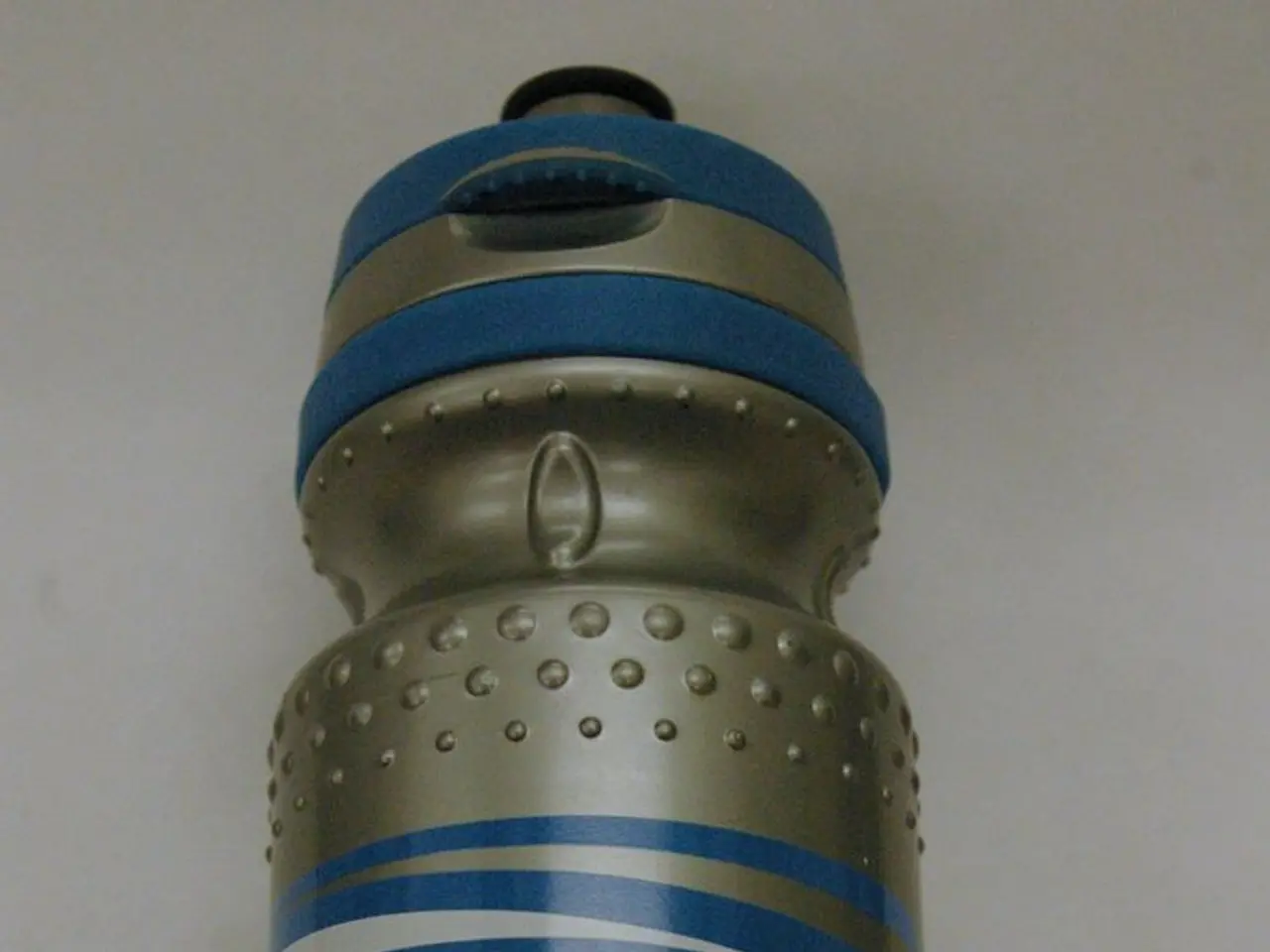Healthcare provider Kandu Health combines forces with Neurolutions, a neurology-focused subsidiary of BCI.
The IpsiHand Upper Extremity Rehabilitation System, a groundbreaking device developed by Neurolutions Inc., has received De Novo marketing authorization from the FDA in 2021, marking it as a "Breakthrough Device" [1]. This innovative technology, which utilizes brain-computer interface (BCI) technology, assists stroke patients in regaining control over their arm and hand by mentally controlling a wearable robotic exoskeleton. The device is intended for stroke survivors with chronic difficulty in moving or controlling an arm and hand, with the aim of improving upper extremity motor function [1].
The IpsiHand system is designed to facilitate the recovery of critical skills such as feeding oneself, grasping objects, and performing other everyday tasks. This approach could potentially enhance the quality of life for stroke survivors by providing more effective and purposeful movement of the affected limbs. Since it is the first FDA-approved BCI for rehabilitation, it signifies a significant milestone in applying BCI technology to real-world patient care [1].
In 2022, Kandu Health was founded, and in 2023, it partnered with Neurolutions. The merged companies, now operating as Kandu, aim to improve stroke patients' outcomes after hospital discharge. They plan to provide ongoing support that evolves as people recover, including making IpsiHand available to eligible patients [2]. The integration of IpsiHand into Kandu Health's stroke support services is continuing, as initiated with the partnership in 2023.
In 2024, the Centers for Medicare and Medicaid Services created a procedure code and made a benefit category determination for IpsiHand. This development is expected to facilitate insurance coverage and accessibility for the device. The merged companies, Kandu, have recently raised $30 million, co-led by Ally Bridge Group and Amed Ventures, to fund Kandu's commercial strategy [3].
The merger between Kandu and Neurolutions, which resulted in the development of IpsiHand, aims to lower the percentage of people rating their quality of life as "poor or worse than death" one year after a stroke from the current 28%. This ambitious goal underscores the potential impact of the IpsiHand system on stroke patient outcomes [3].
The FDA's approval of the IpsiHand system paves the way for further development and adoption of BCI technologies in rehabilitation. However, challenges such as cost, insurance coverage, and accessibility will need to be addressed to ensure widespread availability and impact on stroke patient outcomes [2][3]. Despite these challenges, the collaboration between Kandu and Neurolutions offers a promising future for stroke rehabilitation.
References: [1] Neurolutions. (n.d.). Retrieved from https://neurolutions.wustl.edu/ [2] Kandu Health. (n.d.). Retrieved from https://kanduhealth.com/ [3] VentureBeat. (2023, March 14). Kandu Health raises $30 million to help stroke survivors recover. Retrieved from https://venturebeat.com/2023/03/14/kandu-health-raises-30-million-to-help-stroke-survivors-recover/
- The FDA's De Novo marketing authorization for the IpsiHand Upper Extremity Rehabilitation System denotes it as a "Breakthrough Device," signifying a significant leap in applying artificial intelligence (AI) and median & acquisitions (M&A) in the medtech industry.
- The IpsiHand device, developed by Neurolutions Inc., employs brain-computer interface (BCI) technology to assist stroke patients in regaining control over their arms and hands, aiming to enhance health-and-wellness and improve patient safety.
- The IpsiHand system is designed to facilitate recovery, enabling stroke survivors to perform everyday tasks, such as feeding themselves and grasping objects, thereby lowering the percentage of people rating their quality of life as "poor or worse than death" one year after a stroke.
- The recent merger of Kandu Health and Neurolutions has resulted in the development of the IpsiHand device, which can be accessed through Kandu's ongoing stroke support services.
- The integration of IpsiHand into Kandu Health's services and the collaboration between the two companies offer a promising future for therapies-and-treatments for stroke rehabilitation.
- The Centers for Medicare and Medicaid Services' creation of a procedure code and benefit category determination for the IpsiHand system is expected to facilitate insurance coverage and accessibility, positively impacting finance and business aspects of the medical-conditions sector.
- Kandu Health's partnership with Neurolutions, initiated in 2023, aims to improve stroke patients' outcomes after hospital discharge and make IpsiHand available to eligible patients.
- In 2024, Kandu Health raised $30 million, co-led by Ally Bridge Group and Amed Ventures, to fund the company's commercial strategy focused on treatments for various medical-conditions.
- The development and adoption of BCI technologies in the medical field, led by breakthrough devices such as the IpsiHand system, will require overcoming challenges related to cost, insurance coverage, and accessibility to ensure widespread impact on healthcare and technology sectors, as well as in the field of science.




